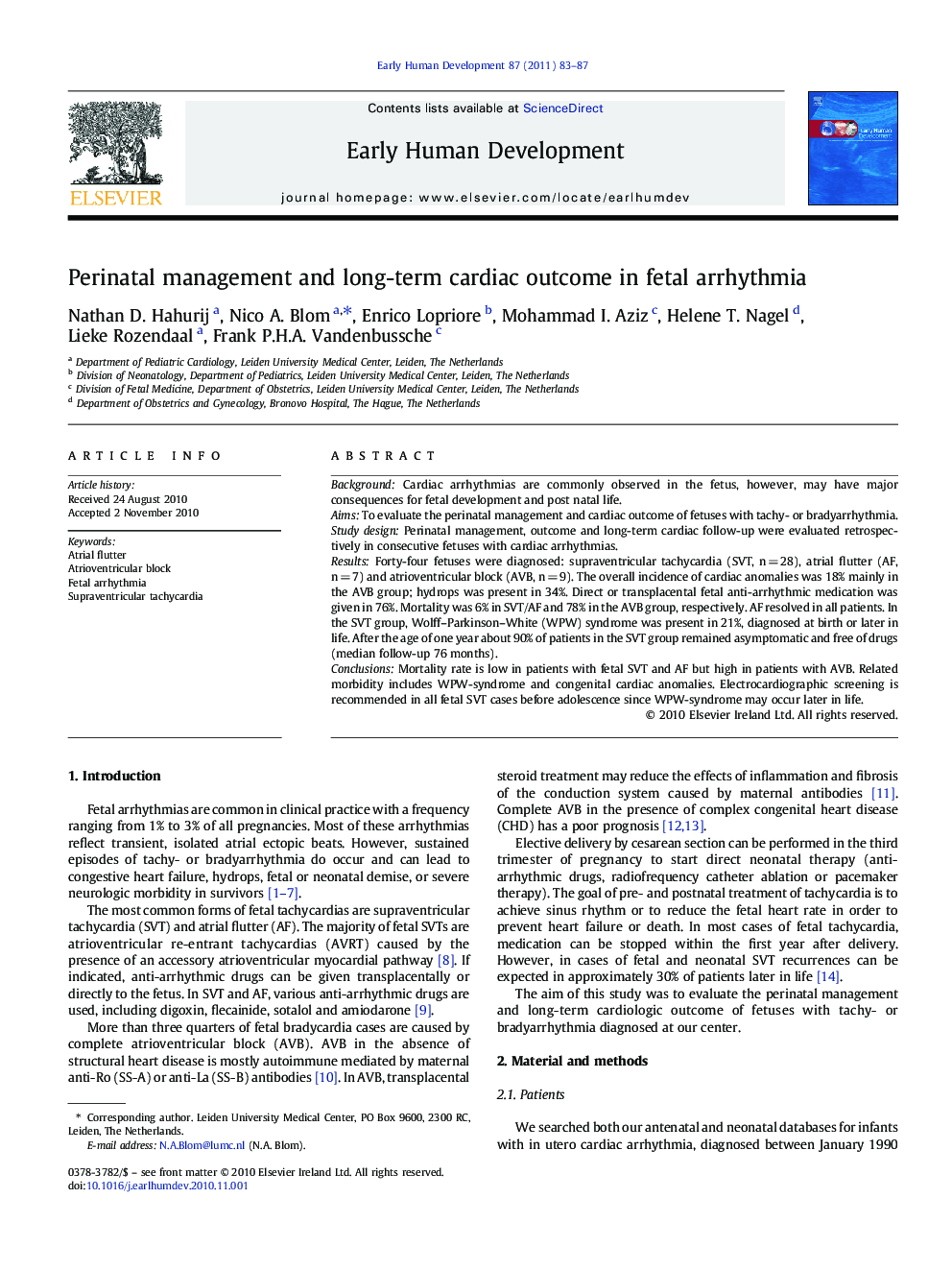| Article ID | Journal | Published Year | Pages | File Type |
|---|---|---|---|---|
| 3917228 | Early Human Development | 2011 | 5 Pages |
BackgroundCardiac arrhythmias are commonly observed in the fetus, however, may have major consequences for fetal development and post natal life.AimsTo evaluate the perinatal management and cardiac outcome of fetuses with tachy- or bradyarrhythmia.Study designPerinatal management, outcome and long-term cardiac follow-up were evaluated retrospectively in consecutive fetuses with cardiac arrhythmias.ResultsForty-four fetuses were diagnosed: supraventricular tachycardia (SVT, n = 28), atrial flutter (AF, n = 7) and atrioventricular block (AVB, n = 9). The overall incidence of cardiac anomalies was 18% mainly in the AVB group; hydrops was present in 34%. Direct or transplacental fetal anti-arrhythmic medication was given in 76%. Mortality was 6% in SVT/AF and 78% in the AVB group, respectively. AF resolved in all patients. In the SVT group, Wolff–Parkinson–White (WPW) syndrome was present in 21%, diagnosed at birth or later in life. After the age of one year about 90% of patients in the SVT group remained asymptomatic and free of drugs (median follow-up 76 months).ConclusionsMortality rate is low in patients with fetal SVT and AF but high in patients with AVB. Related morbidity includes WPW-syndrome and congenital cardiac anomalies. Electrocardiographic screening is recommended in all fetal SVT cases before adolescence since WPW-syndrome may occur later in life.
